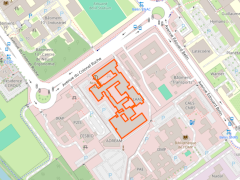Stage
M2 internship offer : Development of a Pipetting Robot for the 3D Assembly of Spheroids
Date de publication
22.10.25
Prise de poste souhaitée
04.01.26
Internship Offer – Development of a Pipetting Robot for the 3D Assembly of Spheroids
Field: Electronics / Automation / Mechatronics
Location: Toulouse, LAAS-CNRS
Duration: 6 months, starting January/February 2026
Compensation: According to current French regulations
Supervisors: Raphaëlle Paounov (Research Engineer) & Laurent Malaquin (Research Director – Head of the ELiA team)
Context
Current biomedical research heavily relies on the availability of relevant cellular models. To date, the murine model remains the gold standard for most preclinical testing. However, it presents genetic and physiological limitations when compared to humans, as well as compatibility issues.
Over the past few years, European and global biomedical research have been increasingly turning toward in vitro models of human tissues and organs to reduce reliance on in vivo animal models, which raise significant ethical, regulatory, financial, and environmental concerns.
Within our team, we are developing a human adipose tissue model from patient-derived samples. Human tissues possess a unique microenvironment supported by the extracellular matrix (ECM). To mimic this architecture in vitro, we use GelMA, a UV-photopolymerizable hydrogel. The hydrogel is then seeded with adipose stromal cells obtained from patients through a collaboration with the RESTORE laboratory.
Before seeding, the cells are cultured into spheroids (cell aggregates) to promote 3D spatial development. These spheroids must be assembled precisely, reproducibly, and in a standardized manner within the hydrogel matrix.
To achieve this, we are developing a pipetting robot capable of handling spheroids delicately, without disrupting them, while precisely controlling their positioning.
This innovation will provide a robust, operator-independent platform, enabling the establishment of reproducible protocols for studying cell–matrix interactions.
Internship Objectives
The internship focuses on improving the existing robot, developing a user interface, and implementing AI-based object recognition.
In parallel, the robot may be adapted for marine biology applications.
Main objectives:
- Optimize the pipetting robot for the generation of hydrogel-encapsulated spheroids and the construction of 3D objects from generated droplets.
- Develop an intuitive user interface.
- Implement an artificial intelligence algorithm for object recognition.
- Perform mechanical characterization of the 3D objects generated by the robot.
- Deploy and test the robot in a biological laboratory environment.
- Adapt the system for marine biology applications (in collaboration with the Observatoire Océanologique de Banyuls-sur-Mer).

(Schematic representation of the robot developed by the team)
Missions and Activities
- Programming (Python or other languages as needed)
- 3D design (Fusion 360, OnShape)
- Integration and testing on an experimental setup
- Writing progress reports and presenting results
Candidate Profile
Master’s 2 student or equivalent (engineering school) with specialization in electronics, automation, mechatronics, or instrumentation.
Required skills:
- Strong knowledge of analog and digital electronics
- Experience in AI programming for object recognition
- Experience with microcontroller programming (Arduino, STM32, PIC, etc.)
- Understanding of automation and control systems
- Software development skills (Python, LabVIEW, Matlab, etc.) are a plus
- Familiarity with 3D modeling (Fusion 360, OnShape)
Personal qualities: autonomy, rigor, organization, curiosity, and enthusiasm for experimentation in a multidisciplinary research environment
Application
Send your CV and motivation letter to: Raphaëlle Paounov ( ), Thomas Flayol ( ) et Laurent Malaquin ( )













